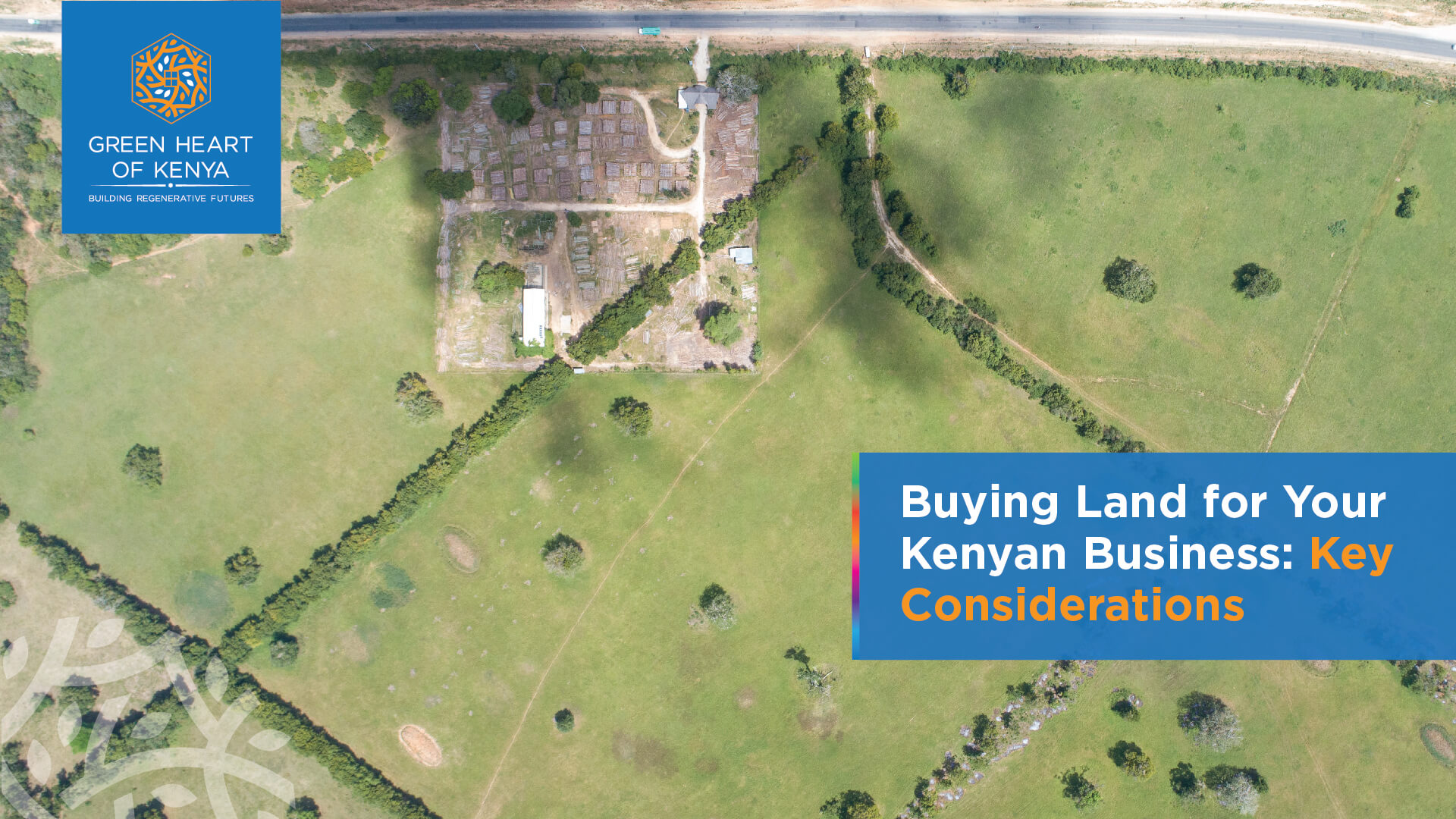So, you’ve decided to take the plunge and establish your business in Kenya? Excellent choice!
The Kenyan business landscape is snowballing, and with a strategic land purchase, your business can be perfectly positioned for success.
But hold that thought!
There are crucial factors to consider to ensure your land purchase empowers your business, not hinders it.
This blog serves as your one-stop guide, exploring the key considerations when buying land for business purposes in Kenya.
Why Kenya is a Prime Destination for Buying Land for Business

Kenya stands out as a prime destination for buying land for business purposes due to several reasons that make it an attractive investment opportunity.
Here are some key factors that make Kenya a favorable location for purchasing land for your commercial ventures:
Economic Growth and Stability
Kenya’s stable political climate and improving infrastructure contribute to a conducive environment for business investments.
The country’s consistent economic growth and development provide a solid foundation for real estate investments, ensuring long-term returns and stability for land buyers.
Diverse Investment Opportunities
Kenya offers a diverse range of investment opportunities in various sectors, including real estate, agriculture, tourism, and services.
The growing urbanization and expanding population create a demand for land for housing and commercial purposes, presenting investors with a wide array of options to explore and capitalize on.
Affordable Land Options
Kenya provides affordable land options with significant growth potential in areas like Kilifi, Malindi, Nairobi, Nanyuki, and more.
Coastal regions like Kilifi are becoming highly sought-after, with developments like Green Heart of Kenya offering budget-friendly land for businesspeople.
Strategic Location and Accessibility
Kenya’s strategic location in East Africa makes it a gateway to regional markets, enhancing the potential for business growth and expansion.
For instance, Kilifi on the Kenyan coast is close to one of the region’s largest ports and airports, offering valuable access to regional and international markets.
Green Heart of Kenya provides reasonably-priced commercial land along the Mombasa-Malindi highway.
Quick Look: Considerations To Think About When Getting Land for Business in Kenya

- Location is always important
- Understand land classification in Kenya
- Do due diligence
- Research market rates
Now let’s dive into them a bit deeper.
Effectively Buying Land For Your Business In Kenya
Location Is Everything
Target Market: Who are your ideal customers? If you’re opening a retail store, being near a high-traffic area with ample parking is key. Conversely, a manufacturing plant might prioritize access to major transportation routes for efficient delivery.
Proximity to Amenities: Consider the importance of nearby utilities like water, electricity, and waste disposal. Easy access to a skilled workforce or relevant suppliers can be a game-changer.
Zoning Regulations: Not all land is created equal. Ensure the land is zoned for your intended business use. Building a factory in a designated agricultural zone might bring you regulation troubles.
Future Development: Think long-term. Will the area experience infrastructural development that benefits your business? Research planned road expansions or industrial park developments that could significantly impact your location’s value and accessibility.
Understanding Land Use and Classification in Kenya
Land in Kenya is categorized for specific purposes. Knowing these categories is vital for a compliant and successful purchase.
Here’s a quick breakdown:
- Agricultural Land: Ideal for farming and related activities.
- Residential Land: Zoned for housing development.
- Commercial Land: Perfect for businesses like shops, offices, and hotels.
- Industrial Land: Designated for heavy industry and manufacturing.
- Special Purpose Land: Government land, national parks, and protected areas.
Don’t Rush. Do The Due Diligence
Buying land is a significant investment, and you want to be careful. A rule of thumb for mitigating risks is to conduct thorough due diligence:
Title Verification: Ensure the seller has a clean and undisputed title to the land. A reputable lawyer can perform a title search to unearth any potential issues.
Land Registry Checks: Verify the land’s size, boundaries, and any encumbrances (restrictions on ownership or use) through the Land Registry.
Environmental Considerations: Is the land free from environmental hazards? Are there any restrictions on development due to ecological sensitivity? Conduct an environmental impact assessment if necessary.
Negotiation and Purchase
Once you’ve found the perfect plot and completed due diligence, it’s negotiation time!
Research market rates for similar properties and have a strong understanding of your budget. A lawyer can represent your interests and ensure a watertight purchase agreement.
Additional Considerations
While the above factors are crucial, here are some bonus points to consider:
Topography: Steep or uneven land might require significant groundwork before construction, impacting your budget.
Security: What’s the area’s security reputation? Factor in security measures like fencing and security personnel if necessary.
Community Engagement: Building positive relationships with the local community can foster goodwill and streamline business operations.
Conclusion – Get Your Land For Business In Kenya

By leveraging Kenya’s economic growth, strategic location, and affordable land, your business can flourish in a dynamic and promising market.
Green Heart of Kenya offers pocket-friendly land in Kilifi, with strategic plots along the Mombasa-Malindi highway.
Ready to explore the exciting possibilities?
Consider contacting a reputable Kenyan development agency to guide you through the process and help you find the perfect property for your business needs.
Written By : Allen Mwema

